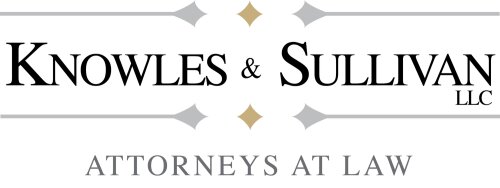Best Trusts Lawyers in Alabama
Share your needs with us, get contacted by law firms.
Free. Takes 2 min.
Or refine your search by selecting a city:
List of the best lawyers in Alabama, United States
About Trusts Law in Alabama, United States
A trust is a legal arrangement where one party, known as the trustee, manages assets for the benefit of another party, called the beneficiary. Trusts are commonly used in Alabama for estate planning, asset protection, charitable giving, and caring for minors or incapacitated individuals. Trusts provide flexibility, privacy, and control over how and when assets are distributed. In Alabama, trusts are governed by state statutes and court precedents, primarily under the Alabama Uniform Trust Code.
Why You May Need a Lawyer
Many people consider creating a trust to secure their family’s future, manage complex estates, or avoid probate. Legal help is often needed in these situations:
- Drafting a trust that fits your specific needs, whether for minor children, elderly parents, or special needs beneficiaries
- Understanding the implications for taxes, Medicaid eligibility, and other financial concerns
- Administering a trust after the trustor’s death, including accounting, distributions, and meeting legal obligations
- Resolving disputes among beneficiaries or alleged breaches of fiduciary duty by trustees
- Making changes to an existing trust or terminating a trust when its purpose has been fulfilled
- Ensuring compliance with Alabama’s specific laws about trusts and estates
Without experienced legal advice, costly mistakes or unintended consequences can arise. A qualified lawyer can ensure that your wishes are carried out and that all legal requirements are met.
Local Laws Overview
Trusts in Alabama are primarily governed by the Alabama Uniform Trust Code, which sets the rules for creating, managing, and terminating trusts in the state. Some key aspects include:
- Types of Trusts: Alabama recognizes revocable trusts, irrevocable trusts, testamentary trusts (those created by a will), and special needs trusts, among others.
- Trust Formation: Alabama requires that a trust have a definite beneficiary, a valid purpose, and a written document signed by the trust creator (settlor).
- Trustee Duties: Trustees in Alabama are fiduciaries with strict duties of loyalty, prudence, and impartiality to the beneficiaries.
- Modification or Termination: Trusts can sometimes be altered or ended if all beneficiaries consent, if circumstances change significantly, or if a court orders it for good cause.
- Probate Avoidance: Having a properly funded trust can allow assets to pass outside of probate, saving time and money.
- Public Records: Unlike wills, trusts generally remain private and are not filed with the probate court.
It is important to consult Alabama-specific laws, as some requirements and protections may differ from those in other states.
Frequently Asked Questions
What is the difference between a revocable and irrevocable trust?
A revocable trust can be changed or terminated by the person who created it during their lifetime. An irrevocable trust, once established, cannot be changed without the consent of the beneficiaries or a court order.
Do I need a trust if I already have a will?
A will outlines your wishes for asset distribution after death and goes through probate. A trust can provide greater privacy, help avoid probate, and offer more control over when and how beneficiaries receive assets.
Who can serve as a trustee in Alabama?
Any competent adult, a financial institution, or a corporate trustee can serve. It is important to choose a trustworthy and responsible individual or entity.
Are trusts subject to probate in Alabama?
Assets held in a properly funded trust bypass the probate process. Only assets not titled in the trust’s name may be subject to probate.
How are trusts taxed in Alabama?
Trusts may be subject to federal income tax and, in certain cases, Alabama state tax. The tax situation often depends on the type of trust and the income it generates, so consulting a tax professional or attorney is wise.
Can a trust be contested in Alabama?
Yes, trusts can be challenged in court, typically by beneficiaries or those who would have inherited under a will, often on grounds like undue influence, fraud, or lack of capacity.
What happens if the named trustee cannot serve?
Most trusts provide for successor trustees. If none is named or available, a court can appoint someone to serve as trustee.
Can I include out-of-state property in my Alabama trust?
Yes, you can place out-of-state property into your Alabama trust, but there may be specific requirements or tax implications depending on the property location.
Do trusts in Alabama protect my assets from creditors?
Some types of irrevocable trusts may provide asset protection, but revocable trusts generally do not protect assets from your creditors. Specialized asset protection trusts and proper legal structuring are necessary.
How do I fund my trust?
Funding a trust means transferring ownership of your assets into the trust. This can include real estate, bank accounts, investments, and personal property. Proper funding is vital for the trust to work as intended.
Additional Resources
Here are several organizations and governmental bodies that offer information or assistance related to trusts in Alabama:
- Alabama State Bar - Lawyer Referral Service and public resources
- Alabama Unified Judicial System - Probate Court information
- Alabama Department of Revenue - Guidance on estate and trust taxes
- Alabama Department of Human Resources - Assistance on special needs and elder law planning
- Local county probate courts - Forms and filing information for trust-related matters
- Legal Aid organizations in Alabama - Free or low-cost legal help for qualifying individuals
Next Steps
If you are considering creating or managing a trust in Alabama, or if you have questions about your rights and responsibilities as a trustee or beneficiary, take these steps:
- Write down your goals and any specific concerns about your estate or beneficiaries
- Gather relevant documents - such as property deeds, account statements, and existing wills or trusts
- Consult with an Alabama attorney who specializes in estate planning and trusts
- Discuss your needs and get individualized advice before making any changes to your assets
- Follow through with properly funding your trust and updating beneficiary designations as advised
- Keep copies of all trust documents in a safe, accessible place
Seeking professional legal help ensures your trust is set up correctly and provides the peace of mind that your wishes will be honored according to Alabama law.
Lawzana helps you find the best lawyers and law firms in Alabama through a curated and pre-screened list of qualified legal professionals. Our platform offers rankings and detailed profiles of attorneys and law firms, allowing you to compare based on practice areas, including Trusts, experience, and client feedback.
Each profile includes a description of the firm's areas of practice, client reviews, team members and partners, year of establishment, spoken languages, office locations, contact information, social media presence, and any published articles or resources. Most firms on our platform speak English and are experienced in both local and international legal matters.
Get a quote from top-rated law firms in Alabama, United States — quickly, securely, and without unnecessary hassle.
Disclaimer:
The information provided on this page is for general informational purposes only and does not constitute legal advice. While we strive to ensure the accuracy and relevance of the content, legal information may change over time, and interpretations of the law can vary. You should always consult with a qualified legal professional for advice specific to your situation.
We disclaim all liability for actions taken or not taken based on the content of this page. If you believe any information is incorrect or outdated, please contact us, and we will review and update it where appropriate.
Browse trusts law firms by city in Alabama
Refine your search by selecting a city.













